Today we travel to Praiano, on the Amalfi Coast. It is a small town of just 2000 inhabitants, located between the well-known Positano and Amalfi. If you have ever passed through the Amalfi Coast and you didn’t stop at least for a coffee in Praiano, you may have lost the hidden pearl of the Coast. It is the most authentic and fascinating town. You can enjoy the most amazing sunset, watching the sun diving into the sea just behind Faraglioni rocks of Capri.
Today, Praiano has known also for its open-air museum, with which, the small village with an ancient fishermen and farming traditions, it enters in the touristic cultural network and attracts, every year, thousands of travelers looking for slowness, art, culture, and gastronomy.
During our stop in Praiano, we will talk about this specific event that in the years received a huge national echo. We are talking about the “Luminaria di San Domenico”. The event occurs between the 30th of July and the 5th of August. The whole population of the small village is involved in the organization and with the lighting of thousands of small lamps and candles. The feast dedicated to Saint Domenico and he is celebrated in the convent of Santa Maria a Castro. This convent was built on the mountain and it is accessible just by doing about 1000 steps along a path immersed in the nature surrounded by the Mediterranean flavors such as rosemary, myrtles and carob trees.
This feast occurs since 1606 when some Dominican monks moved to Praiano from the ancient Neapolitan neighborhood of “la Sanità”. In time past, the Praianesi, during the whole year, used to gather vine’s branches in order to realize wood bundles that would have been burned into the gardens in front of the houses. Moreover, they gather all the useful materials to create torches to lighten terraces and the roofs of the houses. When the town started to be lightened with the electricity this ancient feast lost its own old charm. Just in 2001, thanks to the commitment of a local organization, this event has been reproduced again. It was just a holy feast but today is an important event conceived also to be an elegant touristic event, maybe the most important of the whole summer season.
Anciently, the event lasted for 4 days, from the 1 – 4 of August, whereas today starts at the end of July until the 5th of August. The first night is the most fascinating. The whole town plunges into the darkness and is lightened up by 100k candles. The most interesting thing, in a historical moment of a lack of human involvement into the communities, is that the whole citizenship participates at the preparation and the implementation of the feats, from the youngest kids to the elderlies. Even the tourists feel good and love to help locals.
During the first night, it is possible to enjoy all the artistical compositions made with the candles and also some shows with fire and concerts of traditional music in both the main squares of the town: the Saint Gennaro square and the Saint Luca square.
During the second night, on the Saint Gennaro square, there is an important show made with fire and epic music. Every year, a specialized theatre company is invited to exhibit in front of thousands of curious spectators who come from all over the region.
Starting from the third night until the penultimate, always in front of the church of Saint Gennaro, more than 50 kids, coordinated by the organizers, lighten the 2000 candles previously placed on the square. The show starts at 9:00 when the bells start to play. The candles are placed in a specific way, these recall the shape of the artistic majolica composition of the square. During this night, alongside the tiny paths of the town, it is organized a culinary itinerary. Tourists will be able to eat local dishes prepared directly from local people. These are made with all the local ingredients, mainly: pasta with squid, then tomatoes and potatoes, anchovies, aubergines etc.
If someone has to choose a particular night, I would suggest coming during this night, is sufficiently exhaustive, you will enjoy art, fire, show, and food.
The last day starts really early. A procession leaves from the bottom of the town to get the top of the mountain where there is the convent. The purpose is to replace the statue of Saint Domenico in the small church where it belongs. The convent is among the most charming places of the coast, from where you can enjoy a breathtaking view. You are completely submerged into nature and you can enjoy the silence and the beauty, far from the hustle of the main road particularly crowded in that period of the year.
The night, there’s the last show of the festival. First, there are the young artists who play with the fire and then there is a fireworks show where the fireworks explode following the rhythm of the music.
Every year the festival introduce something new. We have had the “tableaux vivants” of Caravaggio or we have had some video mapping projections of the facade of the church and over the mountain. I think that, for a community with such ancient traditions, it is the best way to reinvent its own culture and the best way to valorize its heritage.
VERSIONE ITALIANA
Oggi viaggiamo a Praiano, in costiera amalfitana. Un paese di appena 2000 abitanti situato tra le più famose Positano e Amalfi. Se vi è capitato di passare per la costiera amalfitana e non vi siete fermati a Praiano, probabilmente vi siete persi il paese più autentico e fascinoso di tutta la Costiera. Potrete ammirare il tramonto più spettacolare, con il sole che si tuffa in mare direttamente dietro i faraglioni di Capri.
Oggi è conosciuta anche per il suo museo a cielo aperto, grazie al quale il piccolo borgo con un’antica tradizione di pescatori e agricoltori, si inserisce nel circuito del turismo culturale e attira ogni anno migliaia di turisti in cerca di lentezza, arte, cultura e gastronomia.
In questo passaggio per Praiano però parleremo di un evento che negli anni ha ricevuto una grande eco nazionale e ci riferiamo alla festa della luminaria di San Domenico. L’evento che si svolge tra il 30 luglio e il 5 agosto vede l’intera popolazione coinvolta nell’organizzazione e nell’accensione di migliaia di lumini e candele e si venera proprio San Domenico con una serie di eventi organizzati presso il convento di Santa Maria a Castro, anch’esso arroccato sulla montagna e accessibile solo dopo essere saliti lungo circa 1000 gradini, in un percorso tra una fitta vegetazione mediterranea, carrubi, mirti e rosmarini.
La festa si festeggia dal 1606, da quando i monaci domenicani partirono dal quartiere della Sanità di Napoli e si stabilizzarono sul convento di San Domenico. Anticamente, i Praianesi, durante tutto l’anno conservavano i rami secchi delle viti e realizzavano delle “fascine” che bruciavano nei giardini. Inoltre conservavano tutti i materiali utili per poter creare delle fiaccole e illuminare i terrazzi e i tetti delle case. Da quando il paese iniziò ad essere illuminato con l’energia elettrica questa festa ha perso parte del suo fascino, finché nel 2001, grazie al lavoro di un’associazione del territorio, la festa ha ritrovato il suo antico splendore e forse è stata anche rinvigorita. Da che era una festa prettamente territoriale e sacra, oggi rappresenta l’evento turistico più importante di tutta la stagione estiva.
L’evento originariamente durava 4 giorni, dal 1 al 4 agosto, mentre oggi inizia a fine luglio e prosegue fino al 5 agosto. La prima notte è quella più suggestiva. L’intero comune è al buio e viene illuminato in tutti gli angoli da circa 100k candele. La cosa più interessante è la partecipazione attiva di tutta la cittadinanza, dai bambini agli anziani nonché dei turisti che in quei giorni alloggiano nelle case vacanze o negli hotel. Durante la prima notte, non solo sarà possibile le varie composizioni artistiche realizzate con candele e lumini, ma sarà possibile anche assistere a spettacoli di fuoco e concerti di musica popolare/tradizionale nelle due piazze principali: la piazza di San Gennaro e la piazza di San Luca.
La seconda serata invece prevede un grande spettacolo con fuoco e musica sul piazzale della chiesa di San Gennaro. Ogni anno una compagnia di teatro specializzata in spettacoli di fuoco si esibisce davanti a centinaia di spettatori curiosi che vengono da tutta la regione per assistere allo spettacolo. Negli ultimi anni si sono esibite compagnie francesi e belghe.
A partire dalla terza serata fino alla penultima, sempre sul sagrato della chiesa di San Gennaro, più di 50 bambini, coordinati dagli organizzatori dell’evento, alle 21:00 in punto, avvertiti dai rintocchi della campana, accendono le 2000 candele che riprendono la fantasia della decorazione in maioliche della piazza. Durante questa serata, è organizzata anche una passeggiata culinaria nella via Masa, la via che anticamente era abitata quasi esclusivamente da pescatori. Le pietanze sono tutte cucinate dagli abitanti locali e sono tutte a base dei piatti tipici locali, prevalentemente a base di totani, patate, alici, pomodori, melanzane ecc.
È una serata molto piacevole, si cammina tra stradine illuminate da lumini, opere d’arte in ceramica, gastronomia locale e spettacoli di fuoco.
L’ultima giornata invece inizia molto presto all’alba, quando dal piccolo borgo parte la processione che porta la statua di San Domenico fin su al convento dove poi si segue la messa. Il convento è uno dei luoghi più panoramici di tutta la costiera amalfitana e vedere l’alba da lì su è particolarmente emozionante. Si è immersi completamente nella natura ed è possibile vivere il silenzio e la bellezza lontani dal trambusto della strada principale, molto trafficata in quel periodo dell’anno.
La sera, invece, va in scena lo spettacolo conclusivo dell’intera rassegna, con un doppio show: prima vi sono i giovani artisti che si esibiscono con l’ultimo spettacolo infuocato e poi inizia uno spettacolo pirotecnico nel quale i fuochi di artificio sparano a tempo di musica. La colonna sonora ha un motivo epico che tende a sublimare l’intera rassegna.
Ogni anno il festival si arricchisce di nuove iniziative e nuovi spettacoli. Per anni abbiamo assistito ai tableux vivants di Caravaggio, per altri anni sono stati proiettati dei video sulla facciata principale della chiesa di San Gennaro con la tecnica del video mapping. Insomma, questa è la dimostrazione di come un piccolo paese del Sud Italia sappia reinvantare le proprie tradizioni e offrire uno spettacolo altamente qualitativo ai numerosi turisti che ogni anno riconfermano la loro presenza.
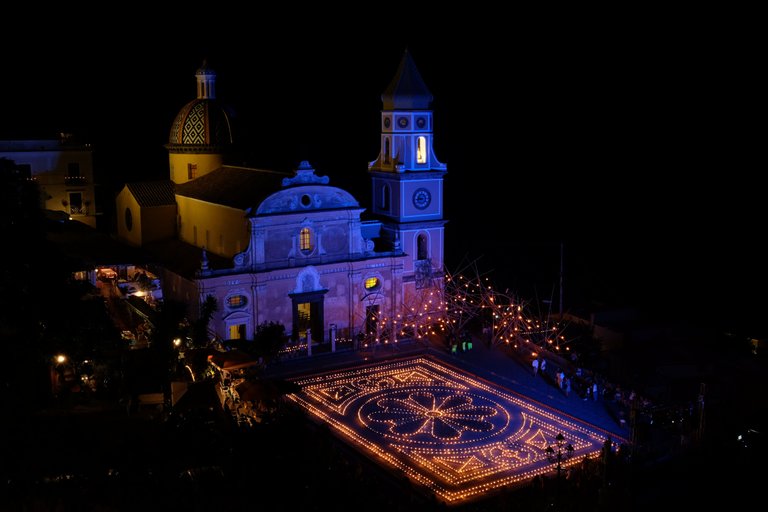
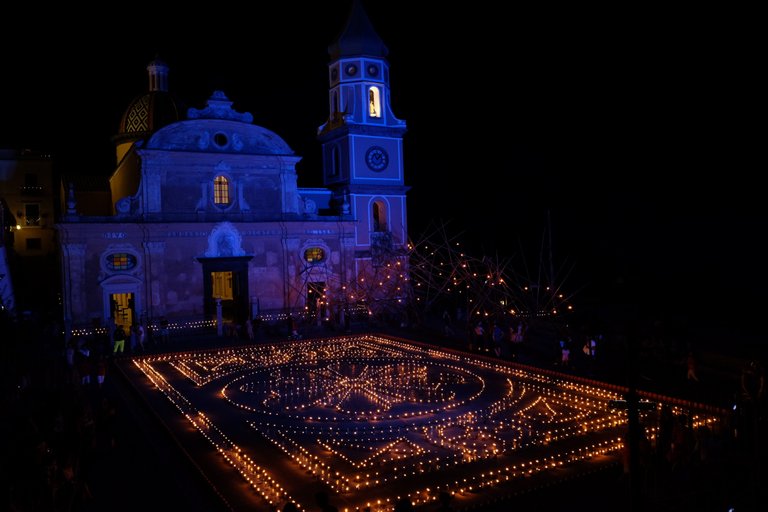
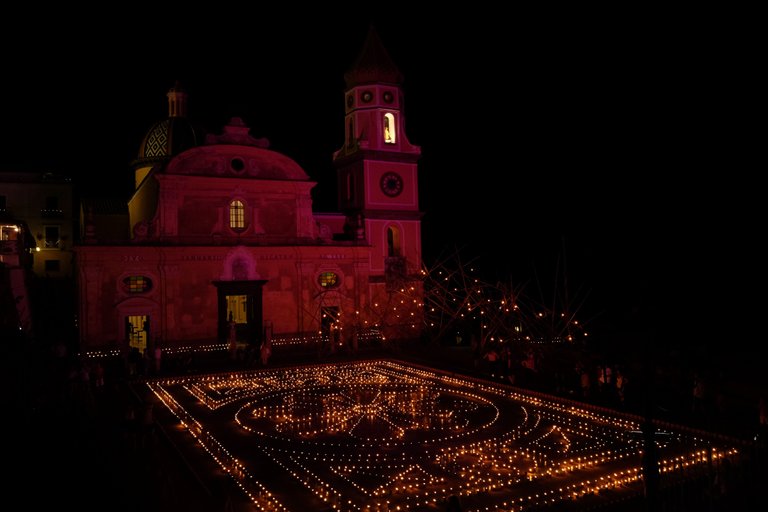
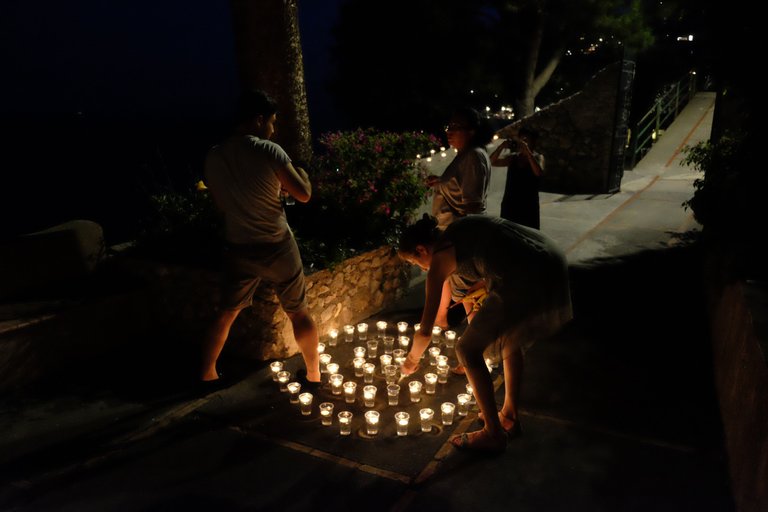
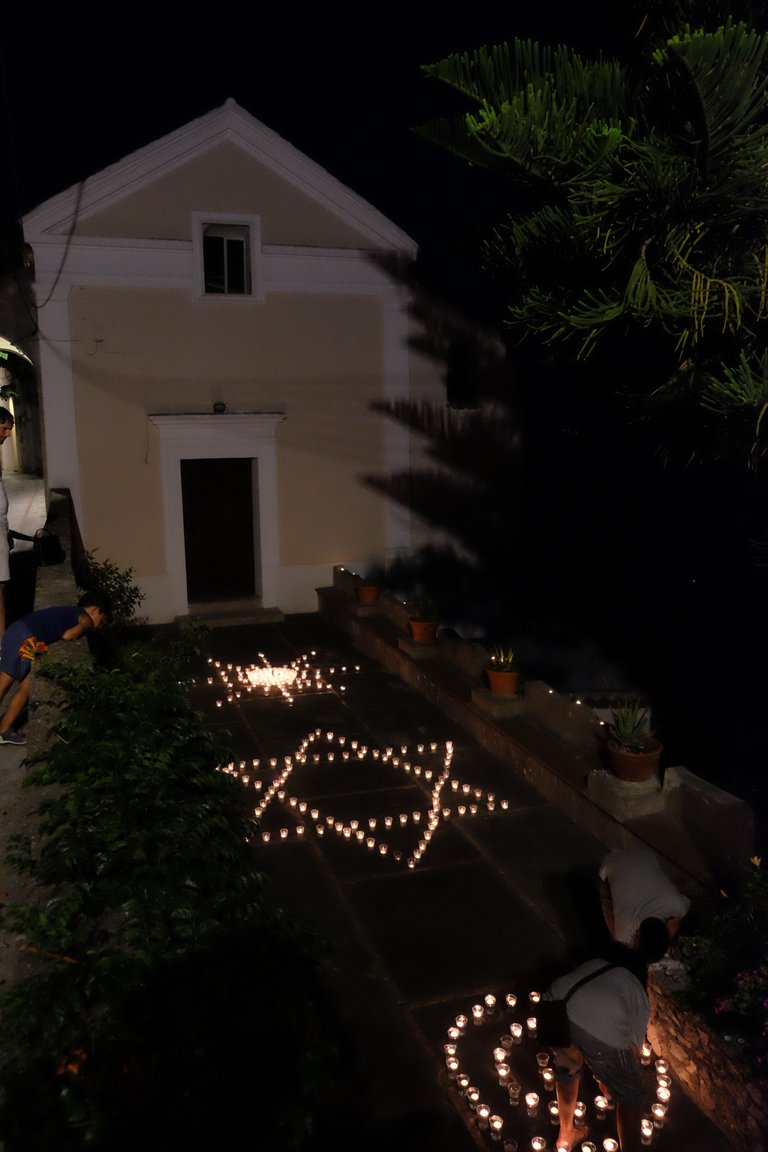
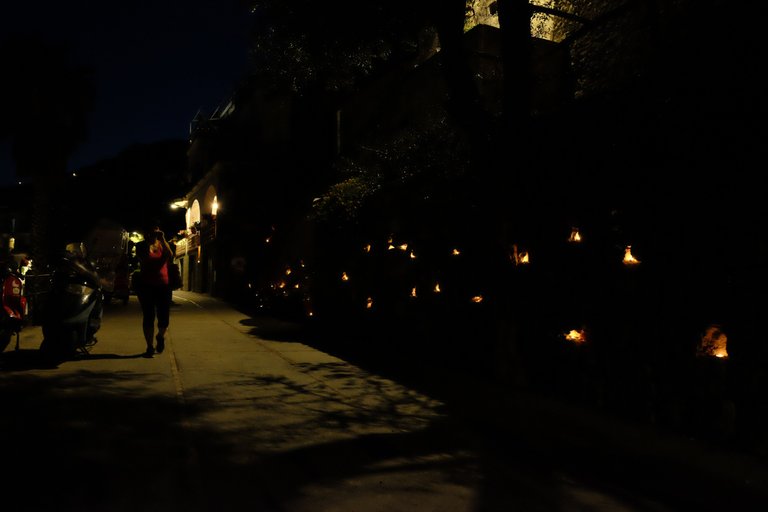
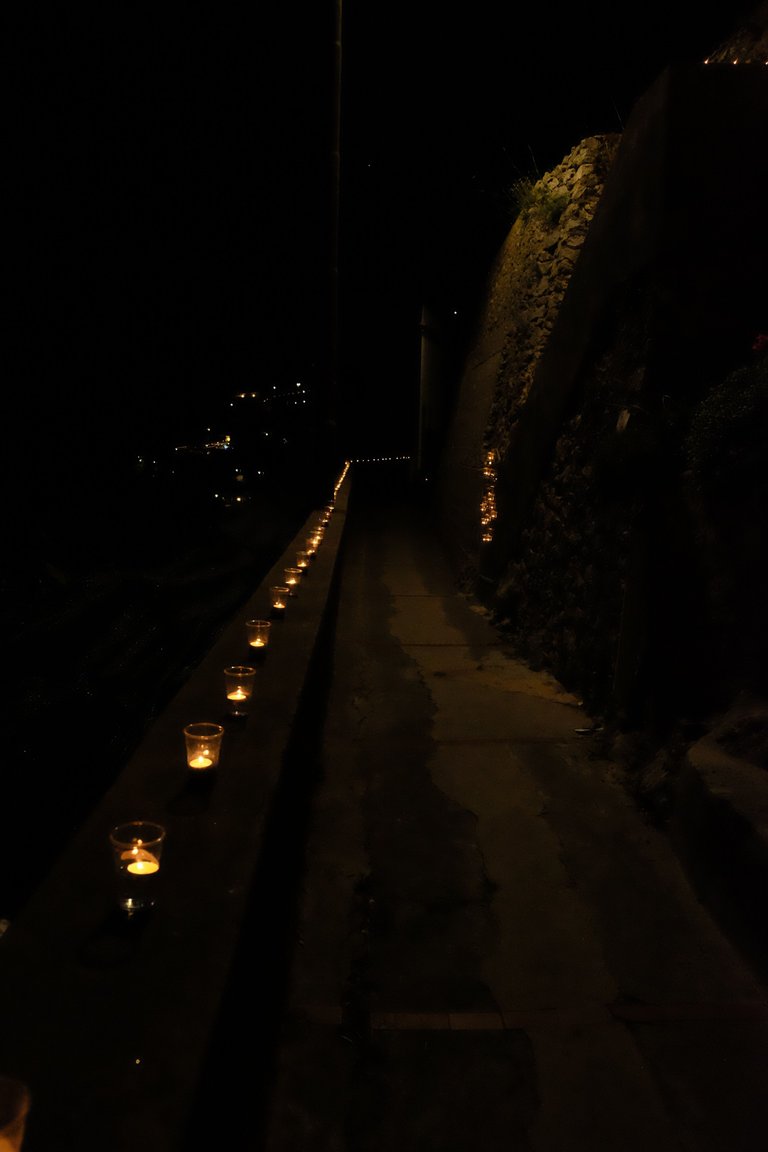
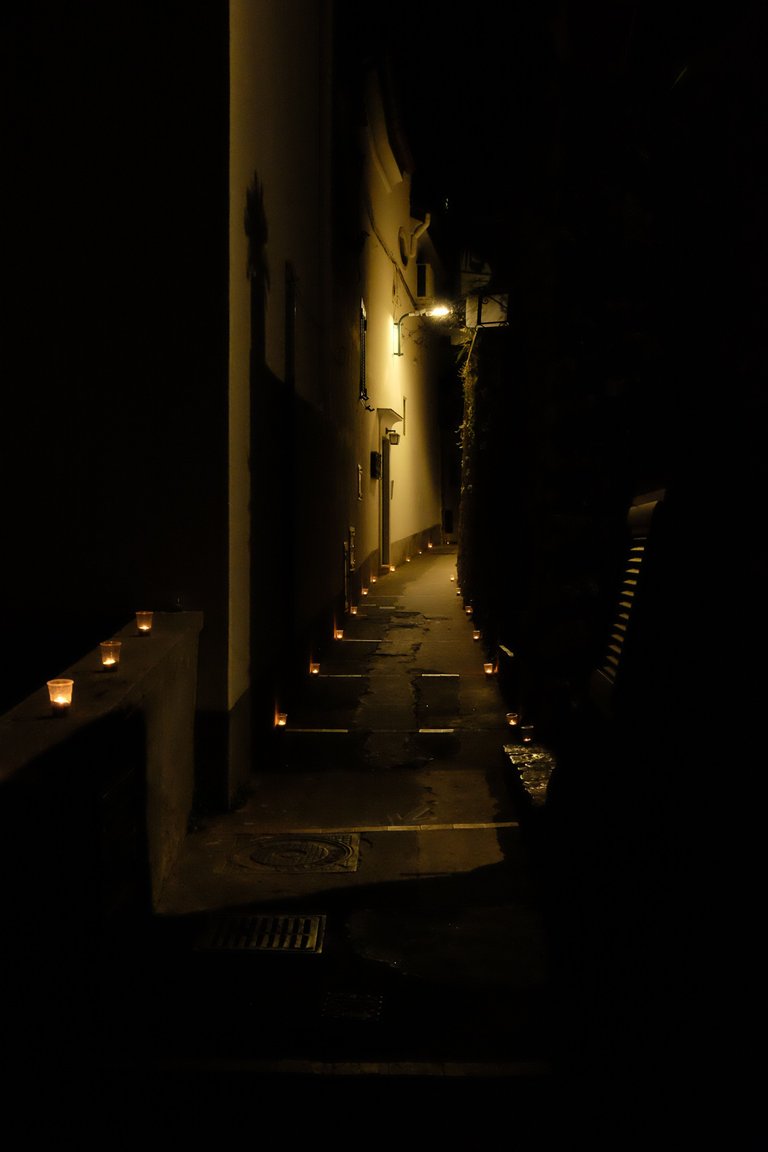
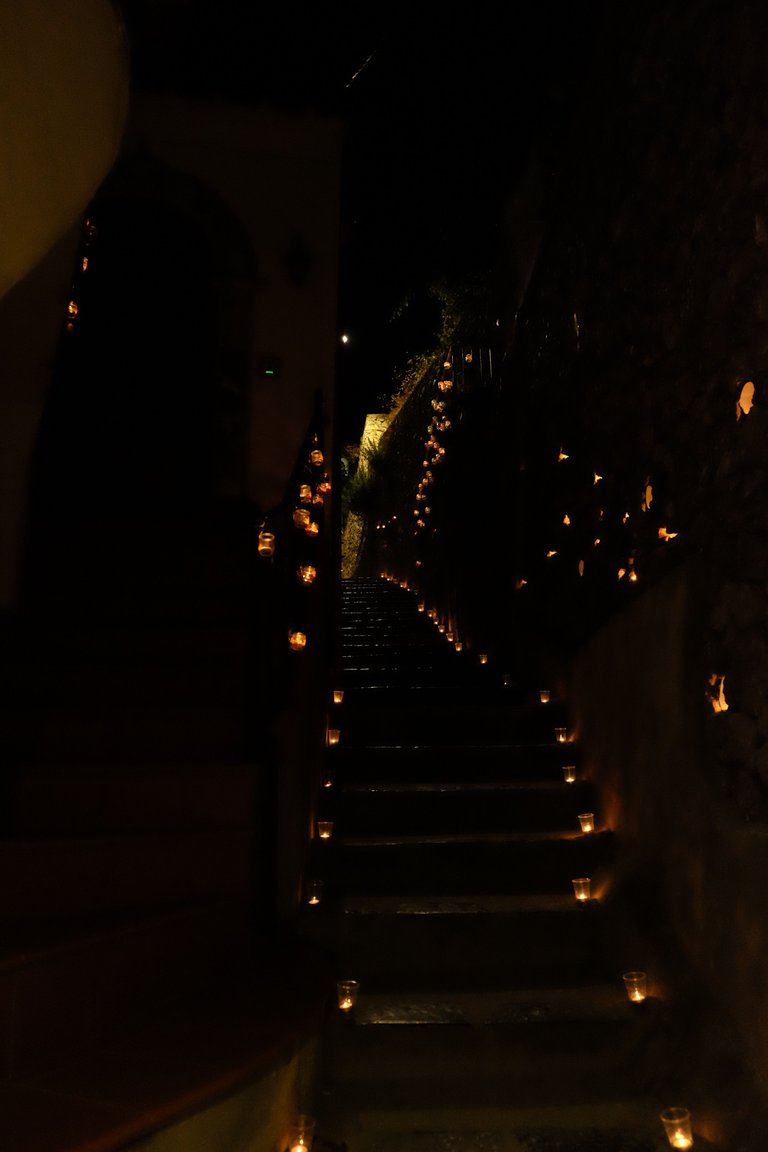
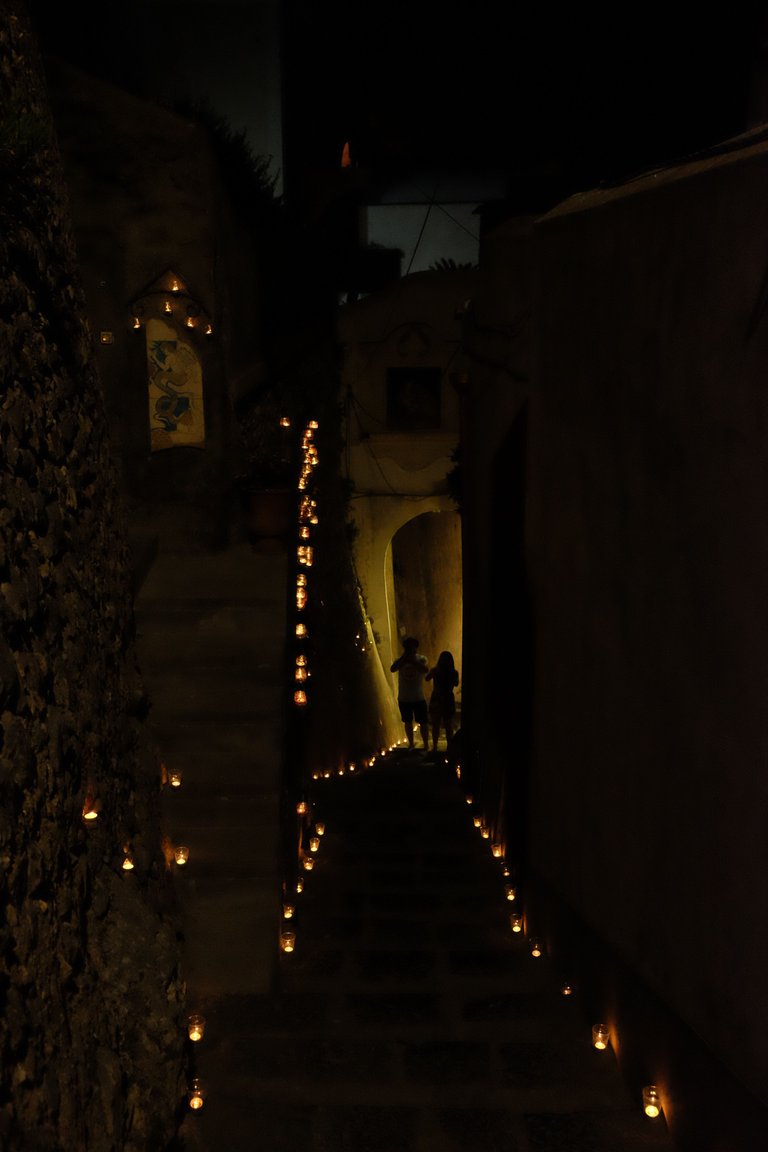
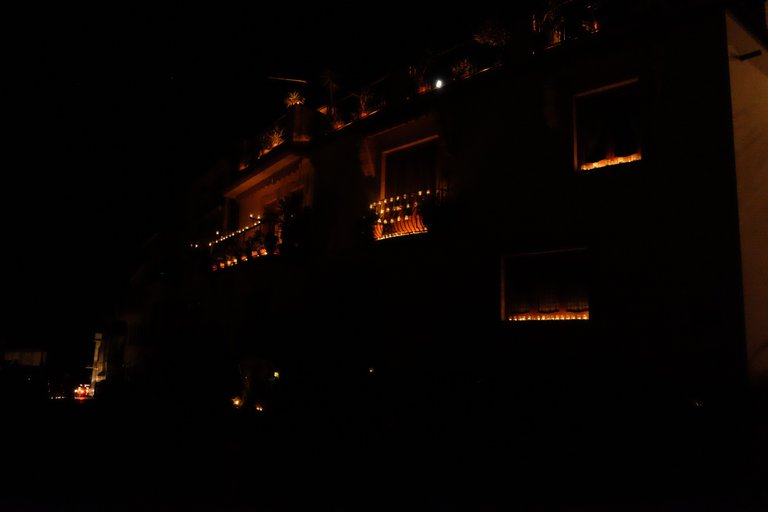
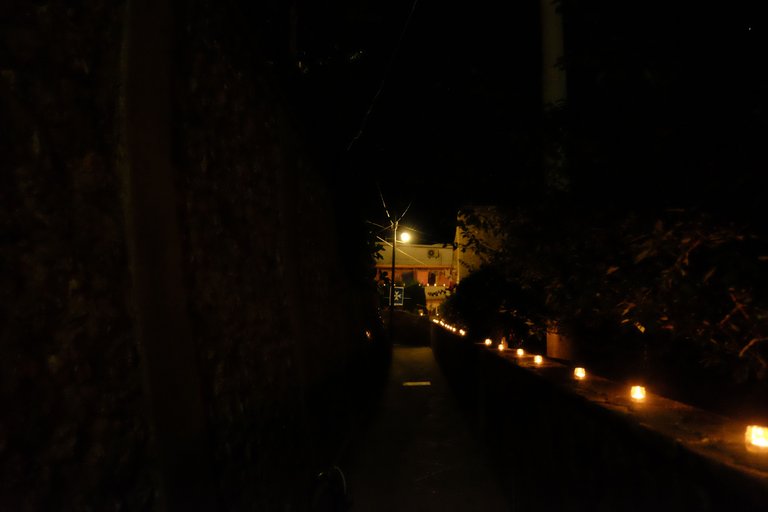
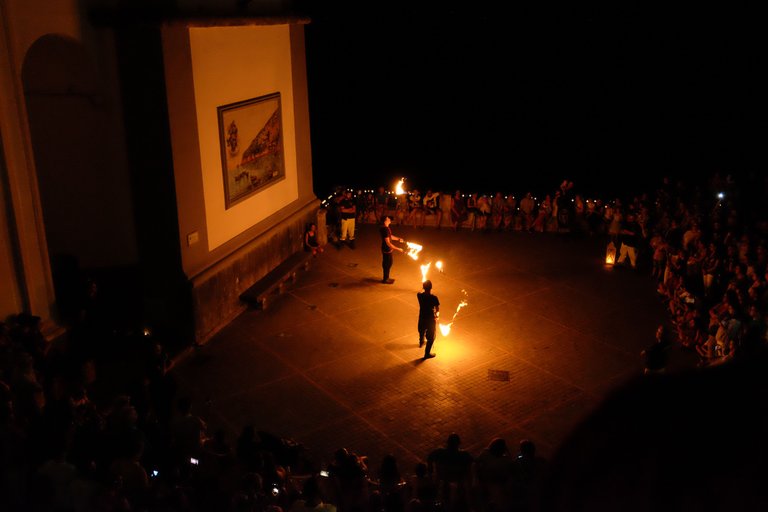
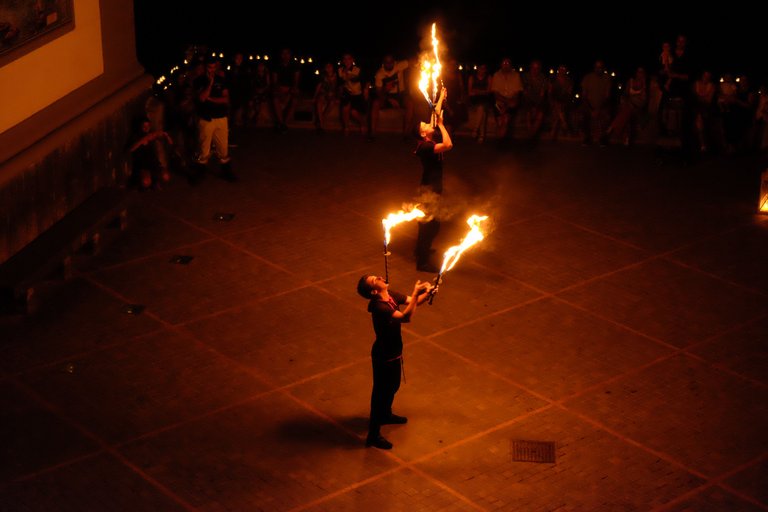
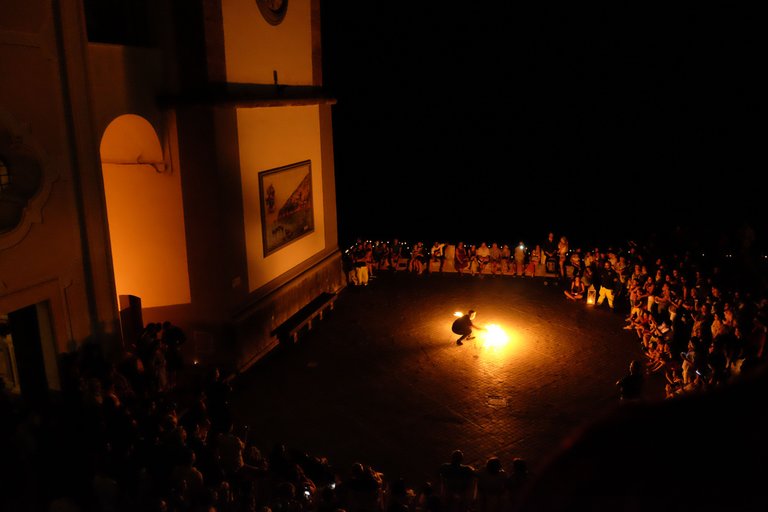
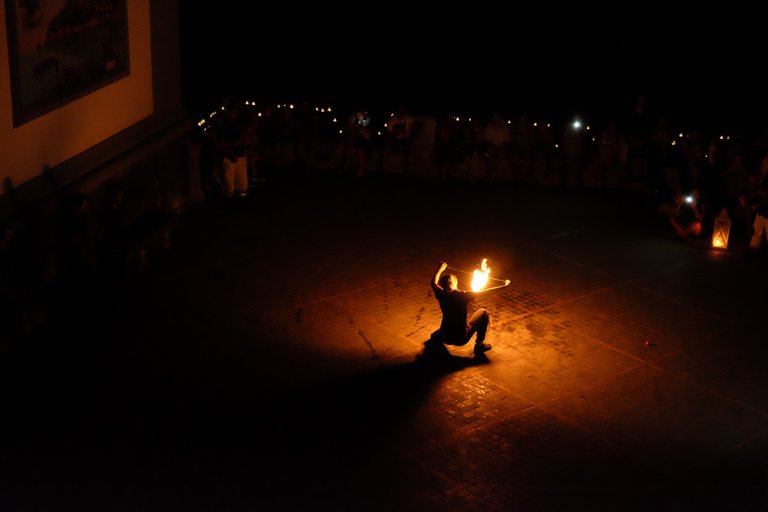
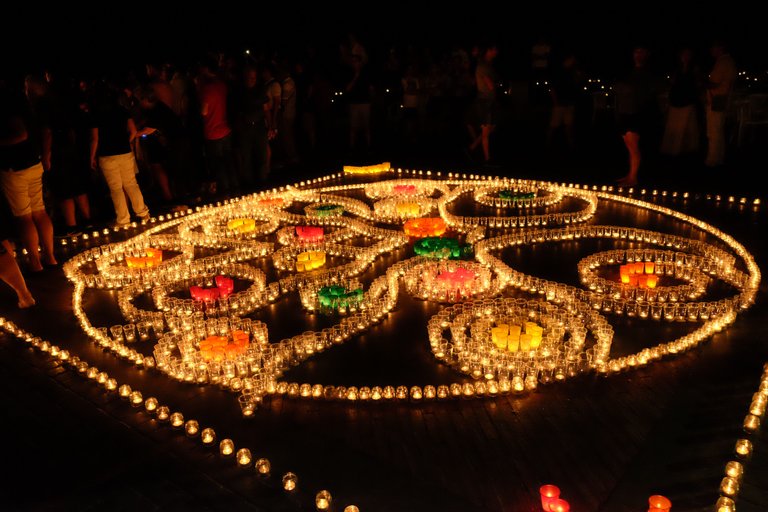
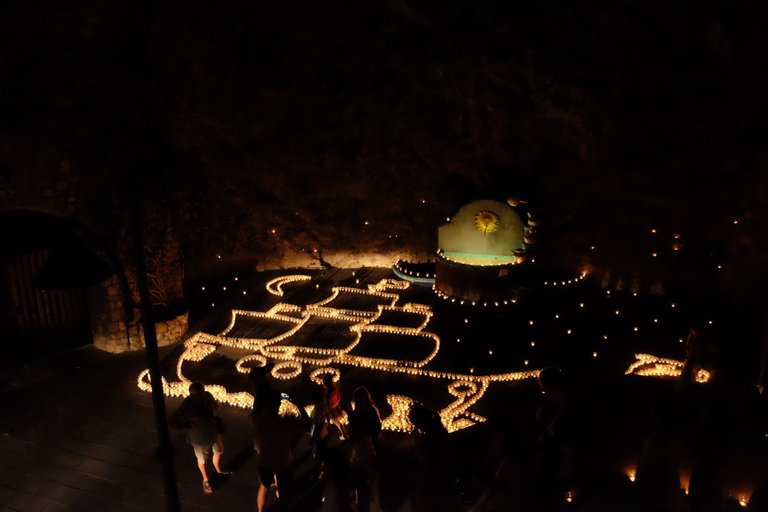
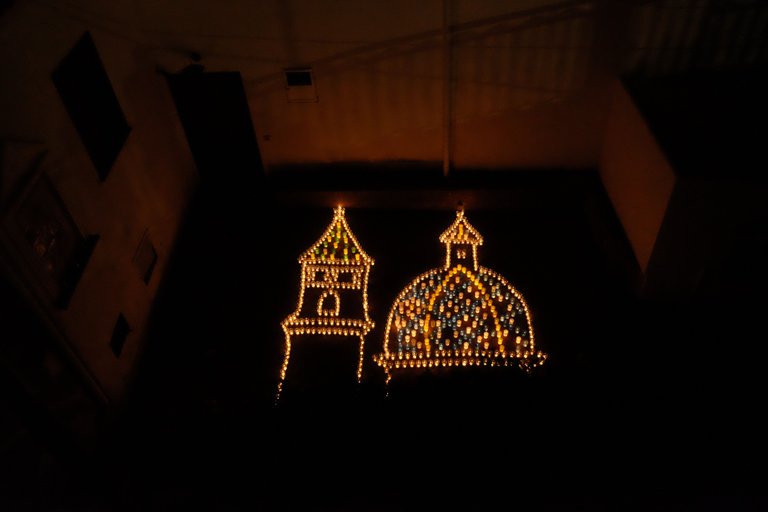
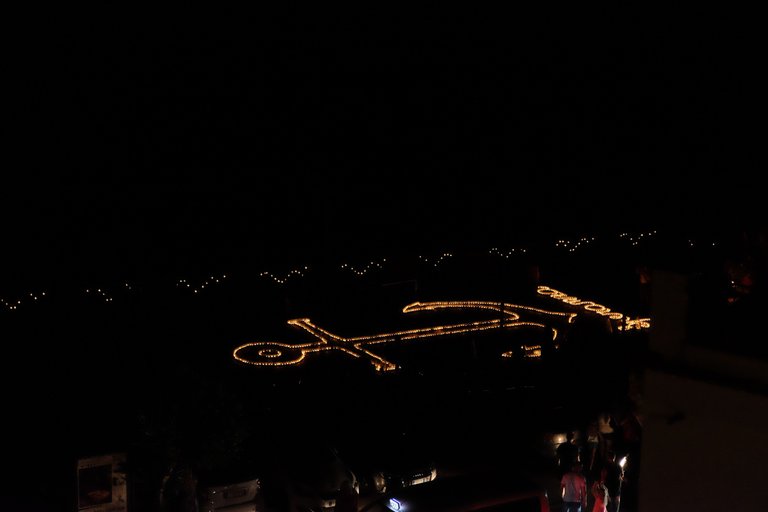
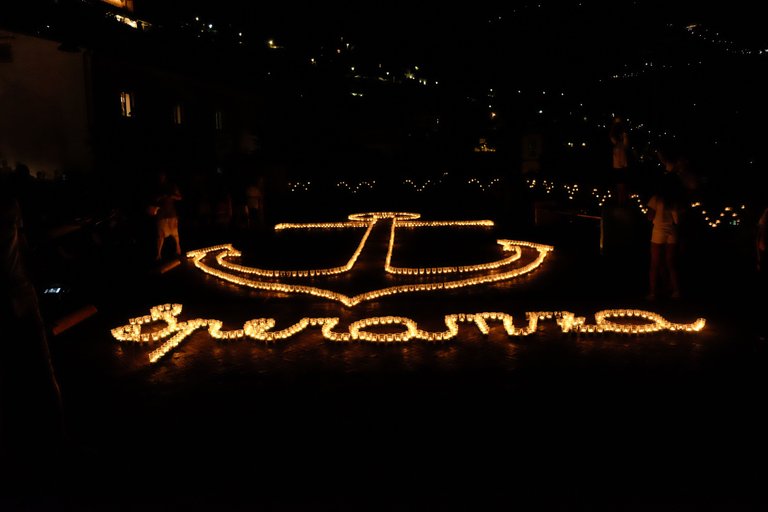
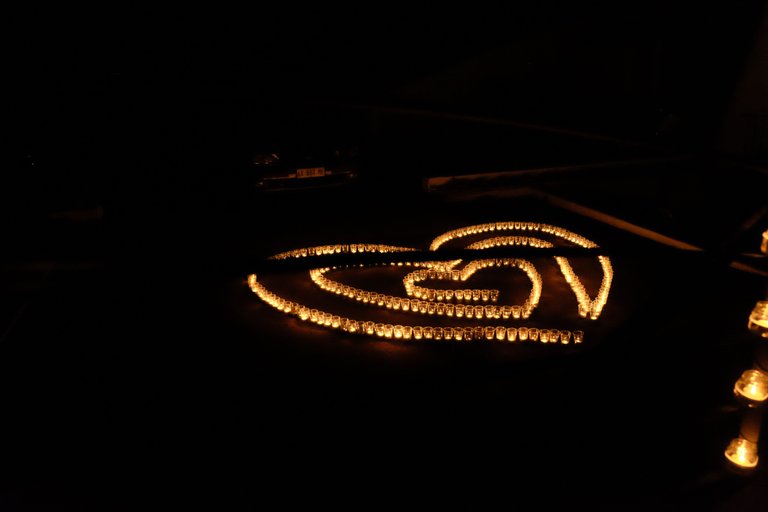
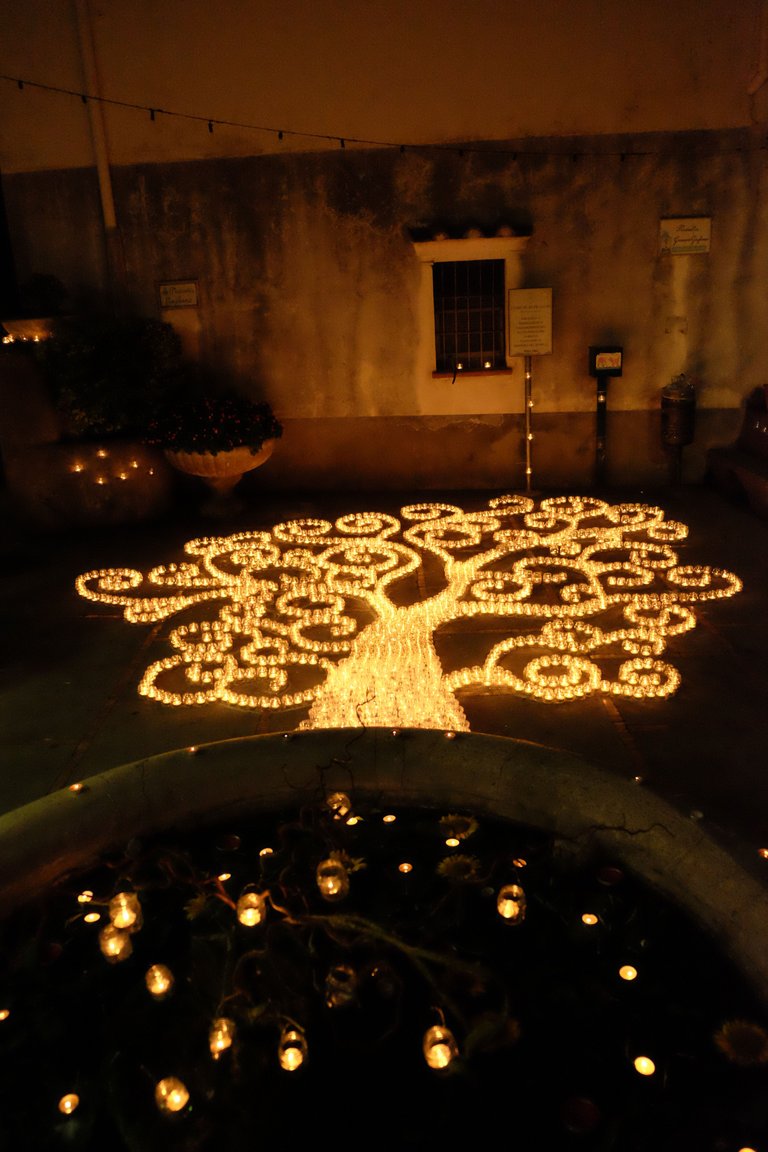
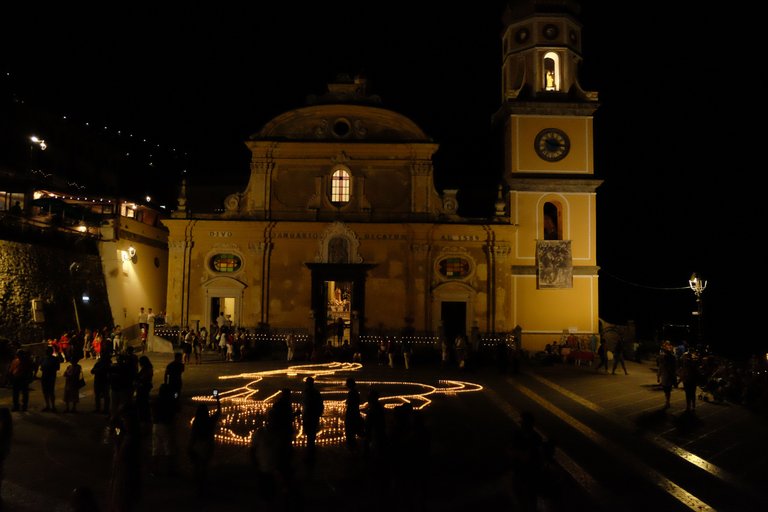
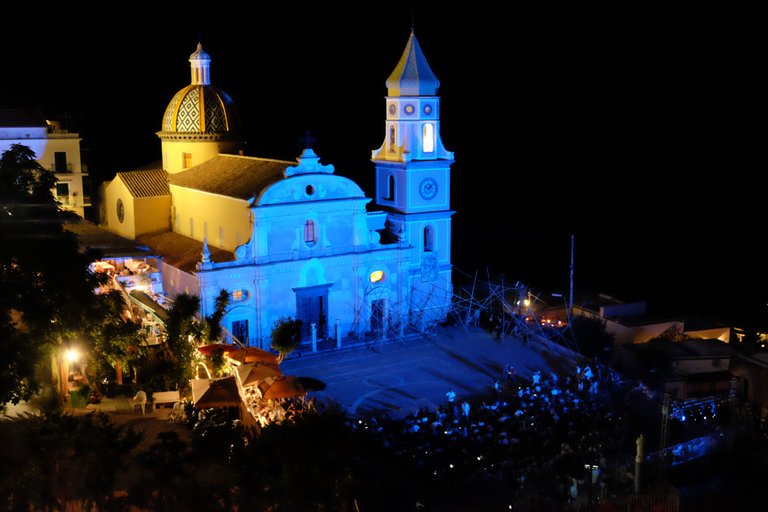
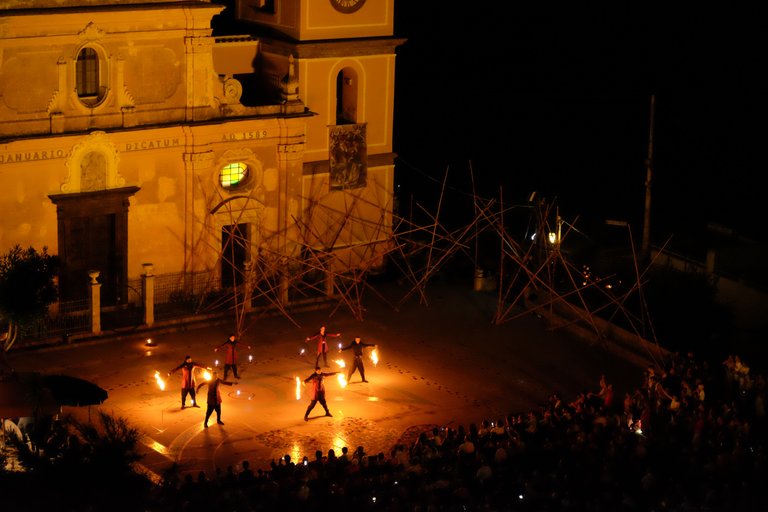
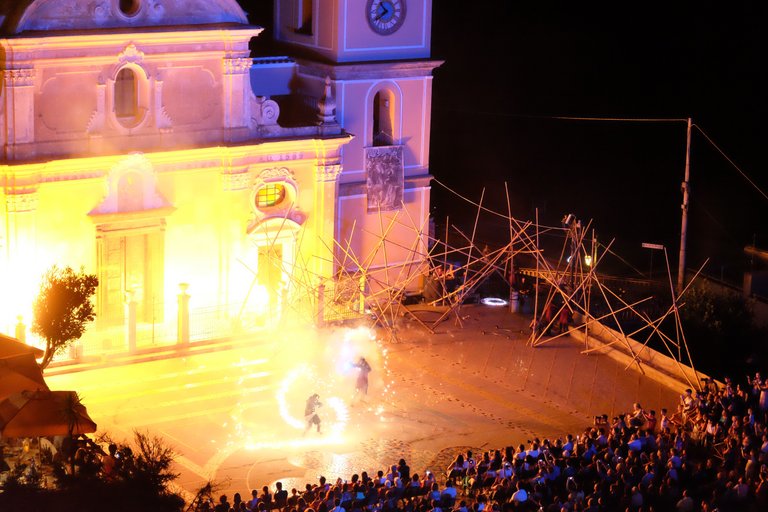
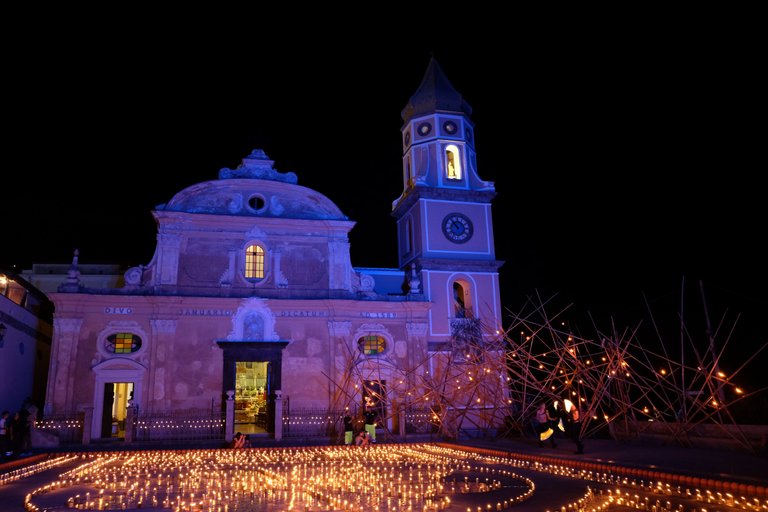
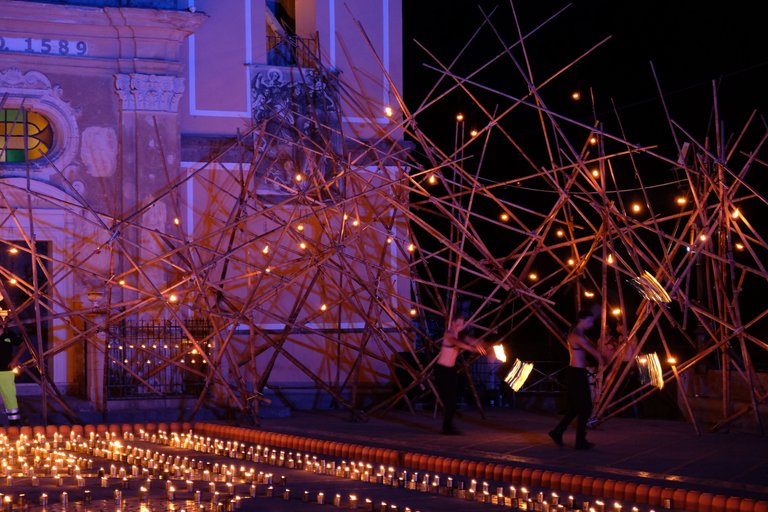
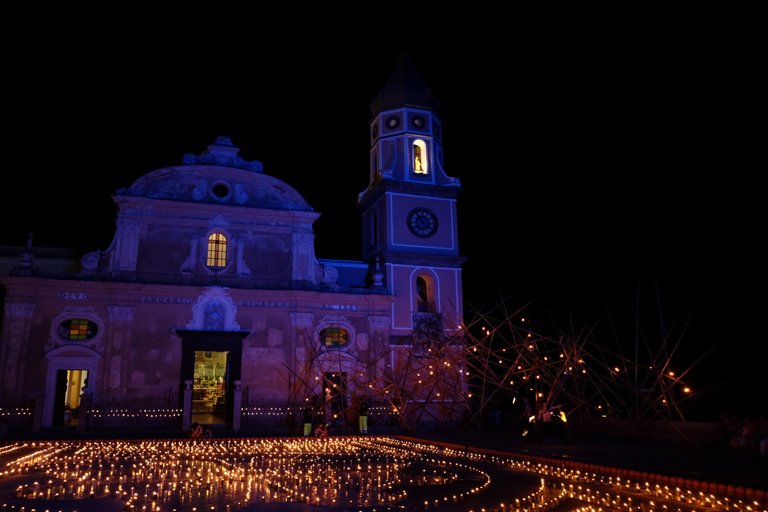
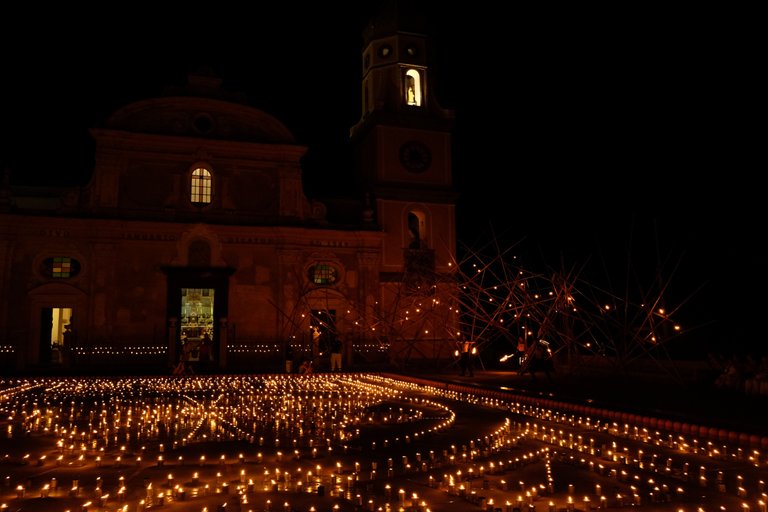
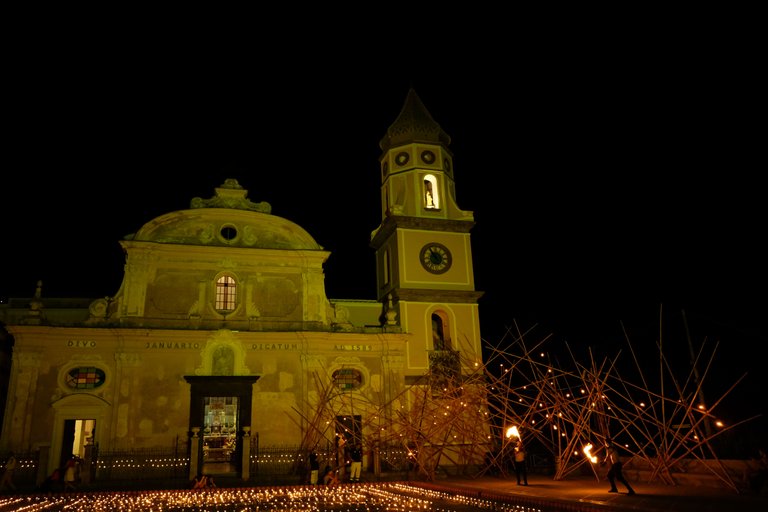
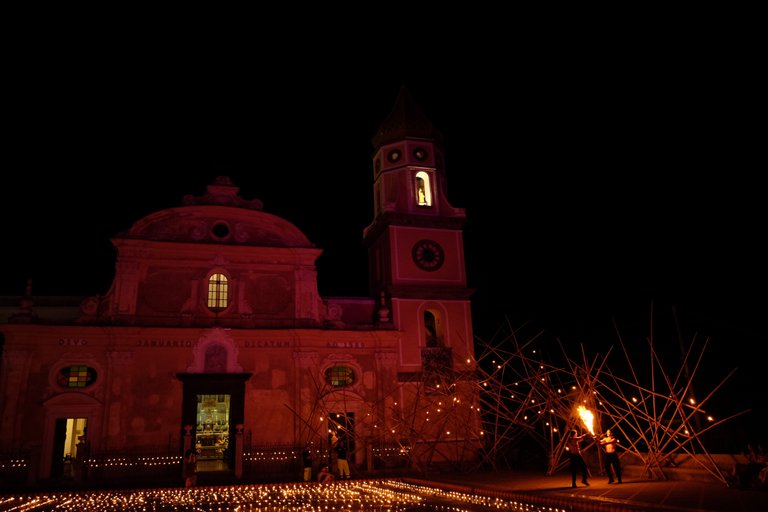
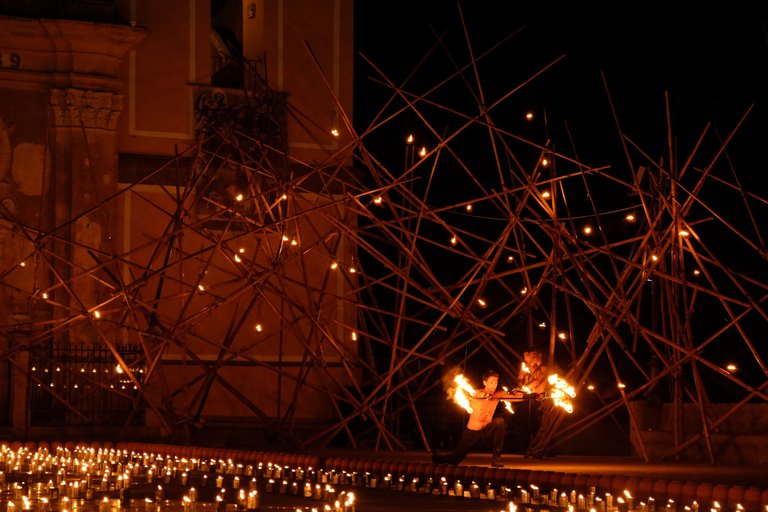
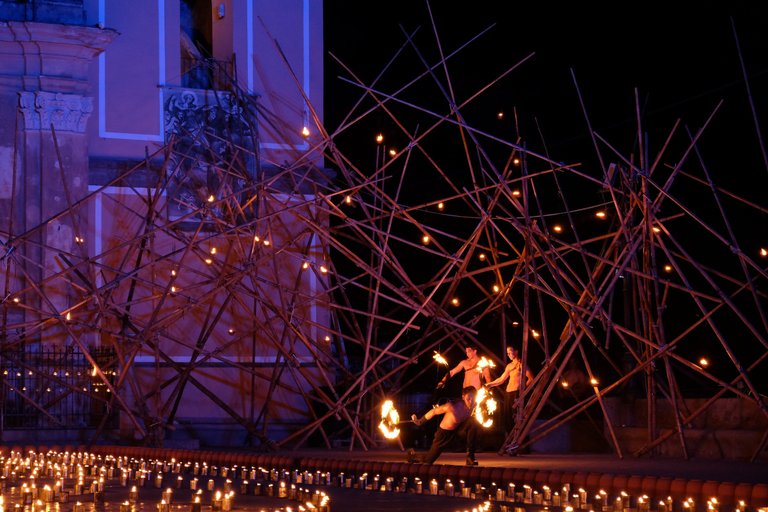
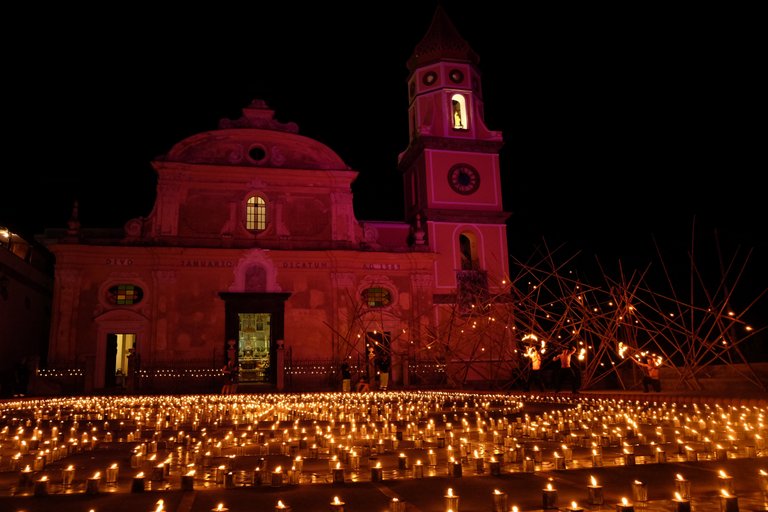
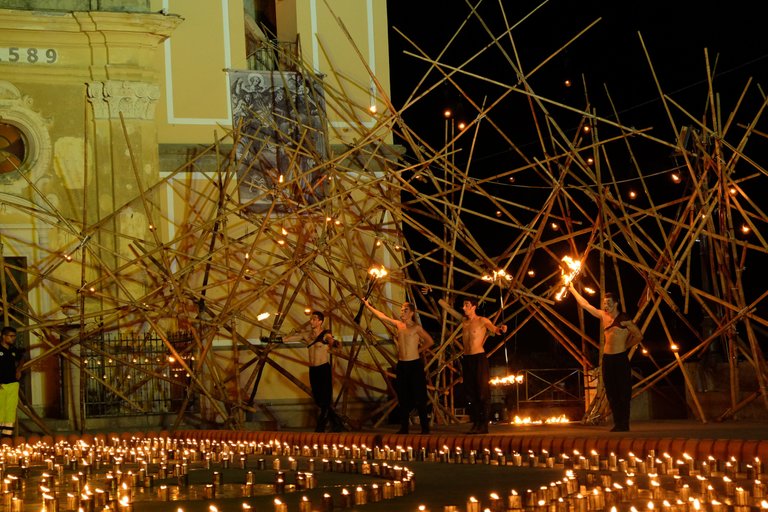
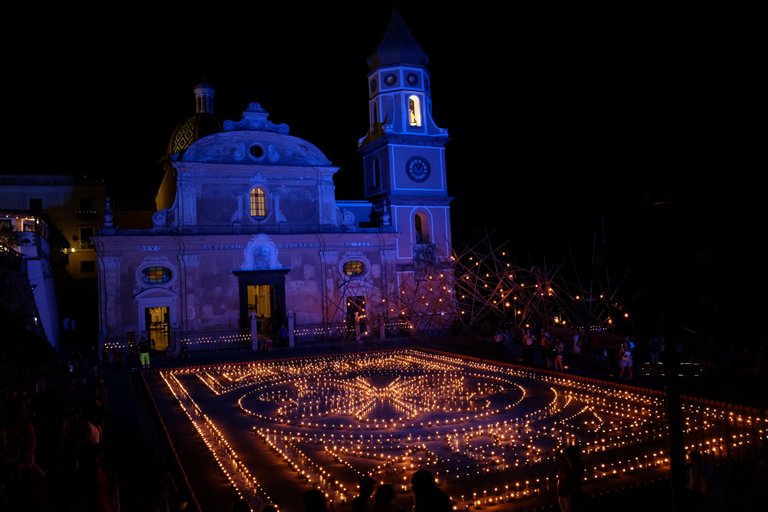
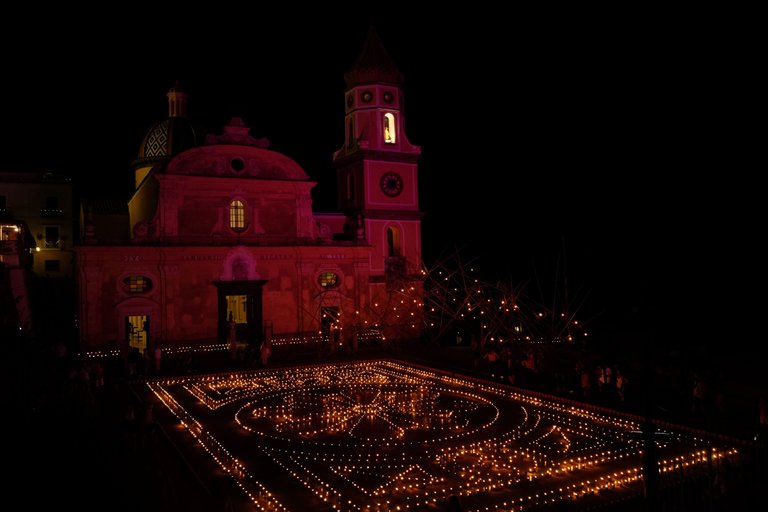
Che bello Roberto, grazie! E complimenti per le foto!
Grazie mille!! :)